Western North Carolina is blessed with a tremendous variety of charitable nonprofit organizations, each of which contributes to the overall health of our community in various ways. These organizations help find homes for animals, protect the environment, feed and clothe the needy, advocate for vulnerable populations, encourage healthy living and help grow independent businesses. Without their assistance, many needs in our community may go unmet. Unfortunately, many charitable nonprofits have found it increasingly difficult to fund their projects and serve their clients, often due to the impacts of the recent fiscal crises experienced locally and nationwide.
To understand how local nonprofits have weathered the storms of funding availability, Mountain Xpress surveyed a number of regional charitable organizations regarding the greatest needs faced by the populations they serve, how demand for their services has changed over the last few years, to what extent their funding has been affected and how their organizations are creatively dealing with these challenges.
What we’ve learned is simultaneously encouraging and disturbing: Some organizations have found ways to buckle down, spend less and still provide the same level of service for their clients; however, many have been forced to reduce staff, eliminate important programs and provide services to fewer and fewer people in need. Some are on the mend and healing slowly, while others are still trying to find their way back to normal. And while not every charitable nonprofit in the region is represented here, this sampling provides a glimpse — in their own words — into the challenges faced by the robust giving community that WNC enjoys. We also asked community leaders and nonprofit directors to share what they think the role of nonprofits should be in our community.
If your nonprofit is not represented here, please feel free to contribute to the discussion by representing your organization in the online comments section or email us at news@mountainx.com.
All Souls Counseling Center
allsoulscounseling.org
Executive Director: Sue A. Brooks • Mission/slogan: Providing mental health services for un- and under-insured Western North Carolinians • Annual operating budget: $525,000 • Target population: WNC people needing short-term counseling • No. of clients: 1,500/year; 8,500+ sessions • No. of employees: 4; 25 volunteers • Estimated economic impact: $835,000-$1 million.
Demand for our services continues to skyrocket as the state mental health reform enacted in 2006 continues to struggle. The Counseling Center has had a waiting list for services, first instituted in 2012. Unfortunately, funding has not kept pace with demand in the last three to five years. State and local governmental funding has been impacted, along with private foundation funding due to the strain on nonprofits throughout the region.
While the Counseling Center was able to provide more than 8,500 counseling sessions in 2013, we are only at about 55% of capacity due to the lack of funding for outpatient mental health services. The Counseling Center has an active board of directors that is implementing a new funding strategy with the executive director and new development director, including plans to diversify funding through contracts, donor solicitation and private foundation partnerships.
All Souls Counseling Center is a grassroots organization, and we have succeeded in keeping our expenses at a minimum. We have benefited from the crucial support of volunteers in every aspect of organization function, from building maintenance to office assistance to psychiatric and therapeutic service.
Asheville Area Arts Council
ashevillearts.com
Executive director: Kitty Love • Mission/slogan: Collective voice for the arts, delivering resources, developing innovative collaborations and fostering community creativity • Annual operating budget: $300,000 • Target population: 250,000 • No. of clients: 1,000 (indirect impact much greater) • No. of employees: 3 • Estimated economic impact: undetermined
We serve people seeking arts and culture experiences, those providing those experiences and the community at large. Arts organizations are often underfunded, and artists often need help with practical skills. The community needs more access to the arts.
We offer classes for creative professionals, award grant funds, provide access to exhibits and advocate on behalf of the arts.
Creative professionals seek our help almost daily as Asheville’s national reputation has grown. But the demand for our grants is three times what we can provide, and we’re in danger of losing that creative talent.
Increased funding from both government and private partners has enabled us to expand capacity, programming and services. But we’re growing slowly and carefully, working to understand constituents’ changing needs and designing programs and services to meet them. We add capacity as opportunity presents itself, constantly assessing our programs’ relevance and effectiveness.
We focus on the professional development of staff and the board, promoting best practices and arts-driven economic and community development. We reiterate a culture of cooperation, exploration, innovation and creativity, and our collaborative approach meets the needs of multiple partners, fostering economy of effort and generating maximum results.
Asheville Area Habitat for Humanity
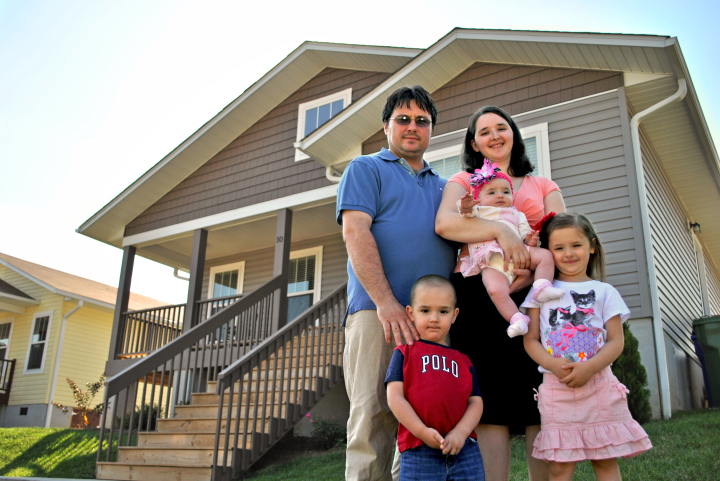
ashevillehabitat.org
Executive director: Lew Kraus • Mission/slogan: Foster community by partnering with qualified families and individuals to build new houses and preserve existing homes • Annual operating budget: $4.9 million • Target population: families and individuals earning less than 70 percent of area median income • No. of clients: More than 1,100 adults and children since 1983 • No. of employees: 49 • Estimated economic impact: not available
Escalating housing costs challenge low- and moderate-income earners. We provide no-down-payment, 0 percent interest, 30-year mortgages and a home repair program for those who already own their homes.
We’ve seen a steady increase in the number of applications for home repair. Meanwhile, the cost of land and infrastructure is rising. Although funding from government sources, foundations and faith communities all decreased during the recession, we’ve been fortunate to have loyal donors and sustaining income streams to keep us growing.
We’ve initiated sponsorships to help fund the cost of land and have found new foundation, business and individual donors. Our ReStore and returning homeowner mortgage payments are critical sustaining income streams for the organization.
Increasing our services, rather than cutting back, has attracted new funding. We’re seeking more matching grants from individuals and businesses to encourage community members’ donations. Our current challenge grant is for The Hearts & Hammers House, dedicated to volunteers — the backbone of our organization. Five local businesses have contributed $30,000; construction starts this month and will be completed during National Volunteer Appreciation Week next April.
Asheville Buncombe Community Christian Ministry
abccm.org
Executive director: Rev. Scott Rogers • Mission/slogan: Create opportunities to serve needy neighbors • Annual operating budget: $6.5 million • Target population: homeless, hungry, uninsured, veterans, struggling families, etc. • No. of clients: Over 50,000 last year • No. of employees: 48 full-time; 54 part-time • Estimated economic impact: $19.6 million
Our organization’s greatest need is volunteers; we also need food, money to buy medicines and pay for heat and utilities. Since 2007, the number of people seeking assistance has about doubled. The fastest-growing need is shelter for homeless women, children and families. ABCCM hopes to buy another motel to take them off the streets. We’re also committed to no one freezing to death in their home or on the streets. Funding for training and employment services was impacted, but this community has rallied, thanks to faithful churches and our business and public partners. More people want job training; we trained over 500 last year.
We appeal to our faith community, volunteers and community leaders to address critical needs. We partner with local, state and federal programs. Thanks to ABCCM’s lean leadership team, 95 cents of every dollar goes directly into program services.
A new pilot program, Project 1300, uses student doctors and pharmacists to provide better access to care to the homeless and the highest utilizers of the emergency room. We’ve also doubled the capacity of three of our crisis ministries. Since 1969, our most creative approach has been creating opportunities for volunteers to serve.
Asheville City Schools Foundation
acsf.org
Executive director: Kate Pett • Mission/slogan: Promote educational success for all Asheville City Schools students by mobilizing the community to support innovative educational activities • Annual operating budget: $807,233 • Target population: K-12 • No. of clients: 4,000 • No. of employees: 6 • Estimated economic impact: Our children’s future (priceless)
Public school teachers face increasing demands, larger classes and limited resources due to statewide budget cuts. More children come to school unprepared and with fewer resources (48 percent of our students live in poverty), meaning schools must do more to help them succeed. With generous community backing, we provide essential support for teachers and students so each child can thrive.
ACSF invests over $600,000 annually. Last year alone, 100 teachers received grants; 3,179 students enjoyed local artists in residence; 700 volunteers were trained and placed; 89 college scholarships were awarded; and 259 middle-schoolers attended IRL after school. Families with urgent needs received emergency assistance. Foundation staff advocate at all levels of government for adequate resources.
We do work for students that no one else can do, funding teacher trainings in racial equity, spearheading critical efforts to create a more inclusive district and removing barriers for our most vulnerable children.
But there are many more children to serve, and we can’t fund all the requests we get. To meet growing demand, ACSF relies on generous individual and business partners. This year we’ll be a beneficiary of parking fees from the Grove Park Inn’s Gingerbread Competition. Last year, this project raised $13,000.
Asheville Community Yoga
ashevillecommunityyoga.com
Executive director: Michael Greenfield • Mission/slogan: Make yoga’s benefits available to everyone, regardless of ability to pay • Annual operating budget: $180,000 • Target population: Anyone who wants to explore how yoga and community can change their life • No. of clients: 5,000 • No. of employees: 7 • Estimated economic impact: Not known
We serve people seeking a holistic approach to well-being of body, mind and spirit, offering more than 80 donation-based yoga classes weekly. Special events create a sense of community. Our days run from 6:45 a.m. to 9:30 p.m., making yoga accessible to everyone from kids to seniors, beginners to advanced practitioners.
When we opened in 2010, we had 200 regularly attending students. Today, we have 5,000. We’ve had to add a second studio and more parking, and we’re continually adding teachers and classes.
This year marked a big milestone: bringing in enough income to cover monthly expenses. Initially, small private loans made our mission possible. Now, students who’ve felt the impact of a daily yoga practice are giving more per visit.
Our success is largely due to our dedicated instructors, who teach for free, and the inspiring students, who feel the value of what they receive here and give what they can, whether it’s a few dollars per class or a larger donation.
The community is creative in finding ways to contribute: everything from appliances to massages to construction. We rely heavily on volunteers to keep the studio maintained, and those big tax-deductible contributions are a huge help.
Asheville Music School
ashevillemusicschool.com
Executive director: Amy Rae Stupka • Mission/slogan: Strengthening WNC communities through music education and outreach • Annual operating budget: $160,000 • Target population: Children ages 4 and up, teens and adults, particularly underserved children, seniors, families and those living with disabilities • No. of clients: 1,500 • No. of employees: 35 • Estimated economic impact: not available
Parents who want their children to experience the joy and academic benefits of a quality music education face two big challenges: cost and transportation. We relocated to Pack Square so students could walk or take the bus to lessons. We keep tuition as low as possible, and we created a need-based scholarship program.
Both enrollment and scholarship demand are growing steadily. Many individual donors helped us get the Paul Thorpe Music Education Fund underway, but to meet increased demand, we must secure other funding sources.
The steady decline in government and foundation funding for the arts (particularly operating support) means we’re looking to member families and the community for contributions and plan to launch our first annual campaign this year. Affordability and accessibility are key components of our mission, and we struggle to keep tuition and fees low amid rising costs.
We’re committed to sustaining and expanding our Sound Education Outreach Program, which gives free performances for underserved populations. We’ve also received an Asheville Area Arts Council grant.
Practice-a-Thon sponsors set their own rate and donate money for each hour their student practices. The spring program culminates in our annual Sound Effects fundraising concert.
Big Brothers Big Sisters of Western North Carolina
bbbswnc.org
Executive director: Robin Myer • Mission/slogan: Mentoring Works! Transforming the lives of children and volunteers • Annual operating budget: $579,405 • Target population: Children ages 6-15 in nine WNC counties who need a supplemental adult relationship • No. of clients: 581 • No. of employees: 14 • Estimated economic impact: not available
Boys being raised without fathers need male role models, grandparents need help raising grandchildren and poverty impacts youth development and educational success. To address these needs, we continually recruit additional Big Brothers and Big Sisters. We’re forming grandparent support groups and have revised our training and match support to educate mentors on how to reduce the effects of child poverty.
Demand for our services has basically remained stable: We’ve always had a long waiting list of children (particularly boys) needing mentors.
Both government and foundation funding have decreased in recent years. As a result, we had to discontinue the Mentoring Children of Prisoners program and have found it harder to fund new programs. When the recession began, we eliminated our fund development director and office manager positions. Staff are spending more time and energy on fundraising efforts. We’ve reduced employee wages and benefits, expenses such as office space and certain program activities.
We’ve held numerous information sessions this fall, and we’re creating a video featuring a Big Brother and Little Brother talking about the need for more mentors. We’ve redesigned our website, and Henderson County added Project Big Start to recruit mentors for first- and second-graders.
Blue Ridge Food Ventures
blueridgefoodventures.com
Executive director: Chris Reedy • Mission/slogan: Support food-related startups with product development, help navigating government regulations, bottling and packaging equipment, marketing advice, etc. • Annual operating budget: $300,000 • Target population: Food and natural products entrepreneurs • No. of clients: 70 per quarter • No. of employees: 2.5 administrators; 8 part-time employees • Estimated economic impact: $1.5 million worth of goods produced at the facility each year
Food entrepreneurs face a strict regulatory environment, large capital requirements for equipment and a highly competitive marketplace. Our facilities and business advice enable startups to avoid crippling initial debt and many other pitfalls that new enterprises often fall prey to.
Use of our services has continued to grow. Successful brands like Bert’s Bees and Annie’s Naturally have paved the way for many other entrepreneurs to fulfill their dreams. Most of the funding we received indirectly from the state in past years has been completely cut. Other sources continue to support some of our activities, but just as with many of our entrepreneurs, these kinds of changes can be difficult for an organization to deal with.
To compensate for lost funding, we’ve begun producing products for clients from outside the area in order to generate more income. We’ve also had to consider income-generating options like copacking to help us become more sustainable.
The copacking program leverages the assets and services we’ve always provided. Given the demand we’ve seen in the last six months, it looks like a promising possibility to begin replacing other funding streams.
Brother Wolf Animal Rescue
bwar.org
Executive director: Paul Berry • Mission/slogan: Provide the resources and programs to help build a no-kill community • Annual operating budget: $1.5 million • Target population: WNC and parts of the Southeast • No. of clients: Not available • No. of employees: 44 • Estimated economic impact: Not available
The greatest need in our community is for folks to have access to low-cost or free vet care and spay/neuter services for their pets.
Demand has greatly increased in the past three to five years due to a greater awareness of our organization. There is way more demand for our services than there is funding available to assist the people who need help.
Specifically, there is less money available for free spay/neuter operations in our community for both dogs and cats, so animals in need are going without being “fixed.” We are strategizing on how to fix that. Among other things, we are seeking more grant funding and talking to local philanthropists about the tremendous need that exists in our community today.
In addition, we have tried a number of creative approaches to help raise much-needed funds, such as opening two thrift stores, a retail store and a grooming salon.
Buncombe County Rescue Squad
buncomberescue.org
Executive Director: Capt. Ryan Jordan • Mission/slogan: Educate and train individuals in order to provide emergency medical service, wilderness search and rescue and firefighter rehabilitation • Annual operating budget: $973,000 • Target population: Buncombe County’s 247,912 residents • No. of clients: 4,236 last fiscal year • No. of employees: 22 paid staff; 29 volunteers • Estimated economic impact: not available
Buncombe County residents require a quick response by trained, competent, well-equipped individuals providing emergency services as needed. We’re selective in hiring employees and recruiting volunteers. All staff receive continuous training, and we maintain all necessary supplies and equipment.
During the last fiscal year, 911 calls increased 30 percent, and convalescent services grew by 68 percent. Funding hasn’t kept pace with demand, and operating expenses continue to rise.
Our EMS and convalescent services are primarily funded through Medicaid and Medicare. Lower federal reimbursement rates reduce revenue, and changes in state law eliminated tax-based funding because we are not a fire department. Employee health insurance costs have also increased. We’ve had to cut costs significantly while reducing or eliminating services such as swift water rescue and its dive team. Meanwhile, we’ve increased revenue-based services, creating an additional EMS crew shift.
We’re reaching out to our community to find individuals with the skills and time to serve on our board as we redefine our mission and goals. We’re seeking people with leadership qualities, connections in the community and skills such as strategic planning and fundraising to join our board of directors or serve as advisers.
Children First/Communities In Schools
childrenfirstcisbc.org
Executive director: Allison Jordan • Mission/slogan: Advocating for and empowering children and families living in poverty • Annual operating budget: $1.2 million • Target population: Low-income children and families • No. of clients: 3,434 children • No. of employees: 38 • Estimated economic impact: not available
In Buncombe County, 1 in 4 children live in poverty; over half of public school students receive free or reduced lunch. They’re more likely to come to school behind, have undiagnosed learning disabilities, score lower on achievement tests and drop out. They have less access to adequate health care and are six times as likely to live in homes without enough food.
We work to create a community where all children can thrive; our services support education, families and economic stability. We also advocate for appropriate public policy.
Demand for our services has increased, and funding hasn’t kept pace. Government and grant funding have been the most affected. We were fortunate that thanks to diversified funding, we found other support and did not have to cut any services. We partner with other organizations and continuously evaluate our programs for effectiveness and efficiency.
In 2010, we launched a listening project to document the experience of families facing poverty. In 2011, we hosted a two-day summit attended by 120 diverse participants. Subsequently, we launched the Success Equation, which has elevated community awareness about child poverty, built stronger collaborations, launched a Door to Store grocery shuttle in Hillcrest and helped win increased funding for affordable housing and transit.
Council on Aging of Buncombe County Inc.
coabc.org
Executive director: Wendy H. Marsh • Mission/slogan: Promoting independence, dignity and wellness in aging • Annual operating budget: $1.9 million • Target population: Older adults, caregivers, Medicare recipients • No. of clients: 5,000 • No. of employees: 21 • Estimated economic impact: 488 hours of in-home aide costs $8,784 annually vs. $50,000 to $60,000 for skilled care
Our clients’ greatest need is finding the necessary assistance for themselves or a family member. We help them identify and access our services and other relevant community resources. Trained aging services specialists are available for home visits, phone consultations, office visits, etc., to complete needs assessments and help create a plan of care.
Demand for our services continues to grow: In the latest fiscal year, we helped more than 5,000 people. The largest growth has been in resource coordination (up 27 percent) and Medicare education and counseling (up 68 percent).
Sequestration affected federal funds for services provided under the Older Americans Act; state funding has decreased in this year’s budget, but we still don’t know how much. United Way funds continue to be reduced, even as calls for service increase. Buncombe County has more people aged 60+ than 17 and under, and it leads the state in this demographic.
To compensate, we’ve undertaken more fundraising and donation solicitation. We’re in year two of a three-year development grant. This has allowed us to focus on development and community awareness of the various ways we can positively impact older adults’ lives.
Girls on the Run of WNC
gotrwnc.org
Executive director: Amy Renigar • Mission/slogan: Inspire girls to be joyful, healthy and confident using an experience-based curriculum that creatively integrates running • Annual operating budget: $205,200 • Target population: Third- to eighth-grade girls in WNC • No. of clients: Over 1,000 per year • No. of employees: 2 full-time; 1 part-time • Estimated economic impact: Not available
Adolescent girls’ self-esteem plummets as they transition into their teenage years; this can lead to substance abuse, eating disorders and promiscuity. Team-building activities bolster their self-esteem, helping them make positive choices and become well-adjusted adults.
Physical activity encourages lifelong health and fitness while building confidence. Participants explore their own beliefs and challenges, the importance of healthy relationships and how to positively connect with and shape the world.
Changes in the state’s educational system and increasing demands on teachers meant fewer schools were able to offer the program last year, and we were down to 1,100 girls. Demand for scholarships has also increased, requiring additional donations, grants and sponsorships.
Foundation grants have declined the most. Longtime funders have decreased or eliminated support because they can’t meet their own demand. We are asking more frequently and getting creative in mutually beneficial partnerships with local businesses and organizations. Last year, we sent out our first annual appeal since 2009; we’re doing that again.
Marketing support from Eagle Soars Consulting has increased our media presence, resulting in more volunteers and donors. Our Girls on the Run event is now the largest family-friendly 5K in WNC.
Green Opportunities
greenopportunities.org
Executive director: Kendra Penland • Mission/slogan: Job training for an inclusive economy and a sustainable future • Annual operating budget: $1.3 million • Target population: Low-income Buncombe County residents 18+ in low-wealth neighborhoods • No. of clients: 140-160 per year • No. of employees: 13; 2 AmeriCorps • Estimated economic impact: Over $1.2 million in wages/stipends; the saved cost to taxpayers is incalculable
Lack of access to living-wage jobs is the biggest need. We train clients in the skills needed to succeed in any work environment, and we work with employers to create job pipelines for our graduates.
Demand for our services has stayed roughly steady, but the types of services sought have shifted. We’re focusing more on intensive, long-term case management and creative partnerships. Funding is harder to secure, but with much effort, it’s kept pace with our core needs.
In response to less reliable grant funding, we’ve focused on one key metric: sustained employment in jobs that improve community and environmental health. It’s better to do one thing exceptionally well than four things spread too thinly.
We’ve sought to diversify our revenue stream by increasing individual/business contributions and creating financially sustainable social-enterprise activities that generate revenues while giving trainees additional income.
We’ve worked diligently to build a culture of constant evaluation with meaningful feedback loops. This has made us nimble and produced novel approaches to meeting both clients’ needs and the organization’s financial realities. A prime example is social enterprises that support programs financially while increasing clients’ on-the-job training.
Irene Wortham Center
ireneworthamcenter.org
Executive director: Liz Huesemann • Mission/slogan: Provide comprehensive, quality residential and day services for target population • Annual operating budget: $4,010,155 • Target population: Children and adults with developmental and/or socioeconomic challenges • No. of clients: Nearly 400 • No. of employees: 159 • Estimated economic impact: not available
Not that long ago, people with disabilities battled a stigmatization that resulted in significant health, social and economic hardships. We offer high-quality care, education and workforce services to people with disabilities to help them lead happy, healthy, more independent lives. Our Early Learning Center gives children high-quality early education, therapeutic intervention and nutritional services. Our adult day activity program provides a supportive space for learning, socializing and improving daily living skills. Our workforce program helps clients obtain and maintain meaningful employment, and our residential program provides around-the-clock care to clients (young and old) who require it.
Funding hasn’t kept pace with demand for services. Recently, the children we serve (90 percent of whom live in low-income households) experienced a freeze of vouchers for child care and preschool services. We’ve sought other grants and donations, and we’re carefully monitoring Medicaid and Medicare news. When cuts affect program funding, we also look at our budget to see what we can trim without compromising the quality of services.
In addition, we work to establish meaningful collaborations with other nonprofits and community partners. We’re all working within the same economic environment, and we’re a stronger community when we work together to help those who need it most.
Liberty Corner Enterprises Inc.
libertycornerent.com
Executive director: Mike Sink • Mission/slogan: Helping people with disabilities live and work in the jobs and communities of their choice • Annual operating budget: $3.1 million • Target population: People with intellectual and developmental disabilities and mental health related challenges • No. of clients: 70 • No. of employees: 120 • Estimated economic impact: Over $5 million
Our clients’ greatest needs: adequate and affordable housing and jobs. We provide low-cost housing with varying levels of staff support, tailored to each individual’s needs, and one-on-one support to build employment skills and find win-win matches for people and employers.
Demand for services continues to increase, and state budget cuts plus the Legislature’s decision not to accept a Medicaid expansion have made it harder for service providers to meet our community’s growing needs.
State-only funding for supported employment and daily services was virtually eliminated two years ago. We’ve had to lower the number of hours of support for some of our clients. We also made the difficult decision to close Asheville Fresh, an innovative social enterprise that provided jobs for people with disabilities and supplied fresh, hydroponic herbs to many local restaurants.
We’ve received significant grants from the Sisters of Mercy Foundation and the Episcopal Diocese of Western NC. We chose to sell our biggest asset, our property on Coxe Avenue (now the Wicked Weed Funkatorium and Tasting Room). This enabled us to invest in growth, paying direct-support professionals something closer to a living wage, and to establish a long-term investment reserve fund.
Meals on Wheels of Asheville and Buncombe County
mowabc.org
Executive director: Dianne Trammel • Mission/slogan: Provide hot, nutritious meals to the elderly homebound; alleviate hunger, improve health and well-being • Annual operating budget: $831,323 • Target population: At least 60 years old, homebound, unable to shop or cook (temporary services available to those recovering from illness or surgery) • No. of clients: 500 • No. of employees: 12 • Estimated economic impact: Per capita cost of service per month – $150; average monthly nursing home cost – $4,000 to $7,000
Our clients’ greatest need is alleviating the threat of hunger due to lack of financial resources, inability to prepare meals or both. We deliver hot, nutritious meals each weekday.
The number of people needing meals has increased but not the funding; we struggle to continue serving the 500 already in our care.
We receive no city or county funding. About 15 percent comes from federal agencies; the rest is private donations from individuals, businesses and foundations, plus proceeds from fundraising events and initiatives. We continuously seek new funding sources and strive to maintain public awareness of our work in the community.
Our priority is ensuring that clients receive a hot, nutritious meal each weekday, plus extra food for the weekend. However, many are living on fixed incomes and need additional assistance to remain independent. We’ve created many cost-effective programs to address clients’ needs, providing nutritional supplements, pet food, snow boxes for winter emergencies, help with household projects and holiday gifts.
Mountain BizWorks
mountainbizworks.org
Executive director: Patrick Fitzsimmons • Mission/slogan: Generate jobs and ensure economic resiliency by helping small businesses start, thrive and grow • Annual operating budget: $1 million • Target population: Small-business owners and entrepreneurs who lack access to traditional business capital • No. of clients: More than 12,500 over 25 years. We average 75 business loans per year, 200 coaching clients and 300 training students • No. of employees: 9 • Estimated economic impact: $1.2 million in business loans, 125 jobs created and 200 jobs retained in 2014
Our clients’ greatest need is access to capital to start or expand businesses. Low- to moderate-income individuals often don’t meet the strict requirements for traditional small-business loans. We’re an entirely local organization: Loan decisions are made by people who live and work here and understand the region’s dynamics.
The recession left many businesses without access to funds. We’ve consistently seen an increase in applicants, and raising operating funds has become more difficult. But the success of our loan portfolio has increased our ability to raise capital.
Foundation funding has become more competitive, and we use government funding mostly for loan capital, rather than operating support. This has affected our ability to provide quality business coaching and training at reduced cost.
We’re working to diversify our income sources, become more self-sufficient and constantly re-evaluate internal costs.
Our highly effective private investor program pays individuals and organizations higher interest rates than savings accounts or CDs. We leverage those funds to make business loans.
North Carolina Outward Bound School
ncobs.org
Executive director: Whitney H. Montgomery • Mission/slogan: Changing lives through challenge and discovery • Annual operating budget: $6.8 million • Target population: People of all ages and walks of life • No. of clients: 4,500 • No. of employees: 300 • Estimated economic impact: undetermined
Our basic principle is that we’re all capable of far more than we imagine. The unique challenges our programs offer help people of all ages and walks of life discover their strength of character, ability to lead, desire to serve and the determination they need to thrive. Outward Bound courses transform lives by developing technical skills, tenacity, grit and compassion.
We’ve seen an exponential increase in demand for veterans courses. Families seeking a competitive edge in college applications and urban school districts struggling to keep students engaged have also increased.
Attracting and retaining support is never easy. Increasingly sophisticated funders demand detailed information on the “return on their investment.” This creates the ongoing challenge of having to match program offerings to funding opportunities, leaving less for general operations.
We adapt programs to fit donors’ interests without sacrificing the core of who we are. We’re also working hard to convert five decades of alumni into regular donors.
Our highly diversified revenue stream includes tuition and contract payments along with traditional fundraising to support scholarships. Last year, nearly 40 percent of our students completed courses funded by scholarships. We’ve created an advancement team that combines marketing and development strategies, tapping into the power of new media and social media tactics.
OpenDoors of Asheville
opendoorsasheville.org
Executive director: Jennifer Ramming • Mission/slogan: Invest in a child, strengthen a community • Annual operating budget: $250,000 • Target population: Local children living in multigenerational poverty • No. of clients: About 300 • No. of employees: 4 part-time • Estimated economic impact: Potentially exponential
OpenDoors students often need specialized tutoring and school-based advocacy. We eliminate barriers, helping students gain a broadened worldview and the resources needed to thrive, both socially and academically.
Demand for our services is growing rapidly. We were founded during the recession, and we intentionally stayed small and focused on expanding the depth, not breadth, of our outreach. We’ve remained sustainable thanks to more than 300 individual donors, more than 50 very generous local businesses and support from a growing group of foundations. We also receive important contributions from 100 local artists for our annual Art Affair fundraiser.
Individual funders and volunteers are our most important assets. We work hard to be transparent about budget decisions, so funders are comfortable providing general operating support. Sustained, long-term investment in local children generates priceless returns to the greater community and to OpenDoors supporters, who see the positive, practical results of their hard work, kindness and generosity.
We coordinate the time, energy and skills of our large pool of committed, talented, connected volunteers, believing that all children deserve access to the region’s many academic and enrichment resources. When we help kids tap into and maximize existing services, we invest in all our children and make our community stronger.
Pisgah Legal Services
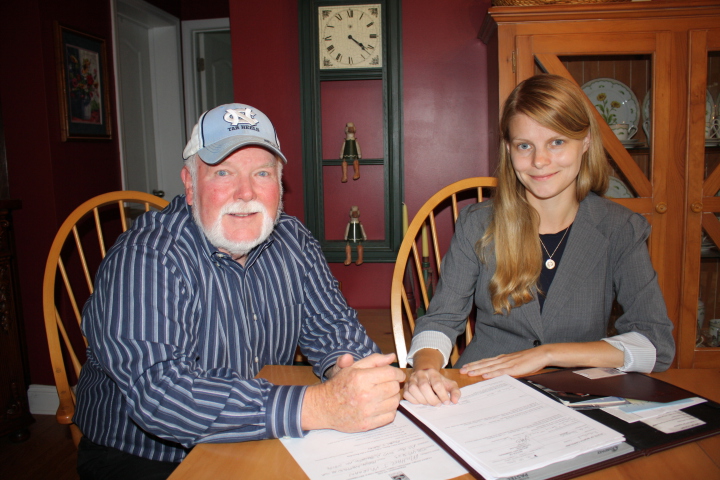
pisgahlegal.org
Executive director: James A. Barrett • Mission/slogan: Provide free legal aid to improve the lives of people in need • Annual operating budget: $3 million • Target population: Low-income people in WNC • No. of clients: 14,000 people per year • No. of employees: 42 staff; 350 volunteers • Estimated economic impact: $25.3 million in quantifiable benefits secured for clients in 2013
Pisgah Legal Services provides free aid to people facing housing problems, domestic violence, lack of access to health care, denial of benefits and other urgent needs.
As poverty rates have increased, so has demand for our services; government and other funding has dramatically decreased. Since the recession, we’ve lost $830,000 in annual grant support. Federal funding for domestic violence prevention dropped by $250,000 per year. County governments and local donors have stepped up, but we’ve had to reduce our domestic violence team and served fewer abuse victims this year. Cuts in state funding for foreclosure prevention mean we can help fewer homeowners. We’ve received new funding to expand other programs, such as preventing fraud against senior citizens.
We strive to maintain and expand our services, because we’re already forced to turn away thousands of people each year. Without an attorney, low-income people can face homelessness, injury or death from an abusive spouse, hunger and other dire consequences.
In 2009, we had few office volunteers; we now have more than 50. Over 300 volunteer attorneys serve our clients, and more than 65 other volunteers educate people about affordable health insurance options.
RiverLink
riverlink.org
Executive director: Karen Cragnolin • Mission/slogan: Economic and environmental revitalization of the French Broad River watershed • Annual operating budget: $200,000 • Target population: Everyone who lives, works or plays in the watershed • No. of employees: 4 full-time; 3 AmeriCorps • Estimated economic impact: Huge
Everyone needs access to clean water for drinking, industry, recreation, agriculture and sustainability. The French Broad River is our sole focus.
Nonprofits continue to be creative to stay competitive. Clean water is essential to our growing beer industry, with the second- and third-largest craft brewers in the country here, along with about 20 smaller craft brewers in the watershed. And that’s in addition to the needs of farmers, recreational boaters and communities.
It has never been easy to raise operating funds. We’re using volunteers more and more: We now have 2,400 volunteers helping us carry out our work. We are also doing more fundraising events.
Our most creative approaches to address these challenges involve just continuing to do more and more projects. Getting things done on the ground in ways that make permanent improvements for people to use and enjoy gets the public’s attention and helps build community support for riverfront revitalization throughout the watershed.
Smart Start of Buncombe County
smartstart-buncombe.org
Executive director: Amy Barry
• Mission/slogan: Strengthen the capacity of educators, families and the community to build a strong foundation for children’s learning and development • Annual operating budget: $4.2 million • Target population: Buncombe County children up to age 5, their families and educators • No. of clients: 4,800 children and adults • No. of employees: 12 • Estimated economic impact: More than $4 million
During the 2,000 days between when a child is born and when they start kindergarten, 90 percent of brain development occurs. Our 10 programs address children’s health, parent education, improving child care and professional development for early educators.
Additionally, we contribute over $1 million for child care vouchers supporting low-income parents who are working or are in school. At times, the voucher wait list has soared to 1,200.
In 2010, despite a 20 percent funding reduction, we expanded our programs to continue services the county no longer offered, working with partner organizations to minimize the impact of budget cuts on clients. Since 2011, we’ve lost an additional $75,000.
Demand for services continues to grow; we’ve expanded programs serving preschoolers. But funding challenges remain. Significant state funding cuts prompted reductions in seven programs; three staff positions were eliminated. We’ve sought to raise more funds from individual donors, foundations and corporations.
Through the First 2,000 Days campaign, we’re educating the community about the importance of early childhood and the significant return on investment. An evidence-based coaching model has dramatically improved technical assistance to child care providers.
Southern Appalachian Highlands Conservancy

appalachian.org
Executive director: Carl Silverstein • Mission/slogan: Conserve the unique plant and animal habitat, clean water, farmland and scenic beauty of the North Carolina and Tennessee mountains for future generations • Annual operating budget: $1.16 million • Target population: Everyone who lives in or visits Western North Carolina or East Tennessee • No. of clients: 255 completed land protection projects • No. of employees: 13; 4 AmeriCorps • Estimated economic impact: $118 million worth of land protected since 2007
Access to farmland, clean drinking water and natural places for recreation are the greatest needs we serve. We work with willing landowners to preserve farmland through conservation easements, protect headwater streams and conserve tracts critical for recreation and wildlife habitat. Our Beginning Farmer Incubator program provides low-cost access to land and equipment for startup or expanding agricultural operations.
We’ve seen increased opportunity to preserve high-priority parcels. But funding for conservation projects has diminished, and we risk losing important natural spaces forever.
Public funding for acquisitions has been cut; there’s still support for top priorities such as the Roan highlands, but many deserving projects are on hold. Completing projects now means piecing together funding from multiple sources. We’ve also increased membership drives, forged new partnerships with local businesses, relied more on private philanthropists and asked landowners to contribute to the long-term stewardship of protected parcels.
“For Love of Beer and Mountains,” a partnership with Highland Brewing Co. and the U.S. Fish & Wildlife Service, brings in donations via seasonal-release beer parties.
Under One Sky Village Foundation
under1sky.org
Executive director: Diane Delafield • Mission/slogan: Our mission is to provide opportunities for older children in foster care to establish permanent connections to a mentoring community of supportive adults and peers, achieve permanency through adoption and to help prepare and support them through the next phase of their lives, including new or continued foster placement, aging out of foster care or reunification with birth family • Annual operating budget: $110,000 • Target population: Children in foster care ages 11-17; young adults who have aged out of foster care • No. of clients: About 30 per year • No. of employees: 15 seasonal camp staff; 2 year-round part-time staff • Estimated economic impact: Dollar amount difficult to determine
Our clients’ greatest need is achieving permanency through adoption, kinship or legal guardianship. For young adults leaving foster care and teen single parents, housing and continued programming are paramount, along with education and community support.
We offer adoption-support programs for teens and camp-based programming that builds community and nurtures life, work and social skills. Volunteer parents provide housing, food and support for young adults leaving foster care. The Second Wind program offers mentoring, community and leadership growth.
Demand for services has increased. Funding has continued for youth in foster care whose plan is adoption, but not for those whose plan is not adoption or for youth transitioning out of foster care without a permanent family. We cannot provide the necessary level of support for them. We do provide free programming to those who have left foster care and have identified parents within the community.
Our most creative approaches include volunteer parents for young adults and our Second Wind program. Youth are able to educate and inspire child care professionals and adoptive/foster parents while earning money and giving back to the community.
Vecinos Inc.
vecinosinc.org
Executive director: Amy Schmidt • Mission/slogan: Improve the lives of farmworkers and their families by providing free medical care, health education and case management • Annual operating budget: $200,000 • Target population: Agricultural workers, especially migrant and seasonal farmworkers • No. of clients: 625 • No. of employees: 2 full-time; 8 contract • Estimated economic impact: $145,000 in primary care alone; hard to project the total value of other services
Farmworkers often live far from their families, lack sufficient food and transportation, and experience dangerous working conditions, exposure to agrochemicals, substandard housing, discrimination, wage theft and depression due to social isolation. Our friendly bilingual staff provides comprehensive care to a vulnerable but nearly invisible group of people in our community.
A recurring grant from the North Carolina Farmworker Health Program has kept up with the farmworkers in our area. We’ve expanded our service area to include Haywood County and plan to add Cherokee, Clay and Transylvania counties.
We’ve depended heavily on our Farmworker Health Program grant, which enables us to provide medical and health education services. We’re working to diversify funding sources to address nonmedical needs. Thanks to donations from the Cullowhee Methodist Church, for example, we can shop weekly at MANNA FoodBank. Interns and volunteers pack food boxes to deliver to local farmworker families twice a month. We started out delivering to 11 families and now have more than 30. We would like to be able to provide these families with even more food.
Veterans Helping Veterans WNC
vhvwnc.org
Executive director: Matthew Shepley • Mission/slogan: Help veterans successfully reintegrate into society as productive members of their community • Annual operating budget: $85,000 • Target population: Veterans • No. of clients: about 20,000 (number of veterans in Buncombe County) • No. of employees: 3 • Estimated economic impact: Positive
The greatest challenge facing veterans today is successfully transitioning back into society. We reach out to vets and let them know what assistance is available. This creates a support network and raises awareness about post-traumatic stress disorder. Our goal is to someday transition veterans directly from service, prevent veteran suicide and end veteran homelessness. Demand for services has grown steadily over the past decade and even more since the “end” of the Iraq war. The massive planned military drawdown beginning next year will greatly increase the veteran population.
Larger organizations tend to receive most of the available funding, partly because grant applications are labor-intensive, and small organizations often lack experienced grant writers.
We rely heavily on fundraising events and donations. This limits what we can provide, but it also means we’re well networked at the ground level, where veterans need us most. Assistance is useless if people aren’t aware of or able to access it. And helping veterans find the support and camaraderie they once had in the military helps prevent suicide. We make the most of the funding we receive by partnering with other local organizations. Working together, we can help our veterans and make our community stronger.
Western North Carolina AIDS Project
wncap.org
Executive director: Jeff Bachar • Mission/slogan: WNCAP is dedicated to preventing new cases of HIV/AIDS and promoting self-sufficiency in people living with HIV • Annual operating budget: $1.2 million • Target population: People residing in the 18 counties of Western North Carolina • No. of clients: 445 case management clients, several thousand prevention program participants • No. of employees: 19 • Estimated economic impact: $2.5 million per year
The greatest challenges our clients face include obtaining access to medical care, life-saving medications and stable housing and coping with stigma regarding HIV/AIDS. Our case managers help clients navigate the social services system. Our prevention team works to break down barriers to reality-based HIV/AIDS education and conducts extensive, free HIV testing across our region.
Client demand has far outpaced funding. We took in about 100 new clients last year and expect that to continue. Fundraising has helped compensate for flat grant funding: The community’s generosity cannot be overstated. We couldn’t provide the range of services we do without the support of so many community members and organizations.
The funding situation has impacted case management services the most. We’ve been able to use fundraising revenue to sustain services, and our new telemedicine program should reduce costs. We’re also exploring additional innovative earned-income opportunities.
The telemedicine program means clients won’t have to drive so far to their health care provider. Our mail-order pharmacy improves clients’ access to medications and provides sustainable earned income that we can reinvest in programs and services.
YWCA of Asheville
ywcaofasheville.org
Executive director: Beth Maczka • Mission/slogan: Eliminating racism and empowering women • Annual operating budget: About $3 million • Target population: Communities of color, low-wealth families • No. of clients: 2,500 families per year • No. of employees: 37 full-time; 55 part-time • Estimated economic impact: About $7.7 million per year
We serve Buncombe County residents who are working hard to provide for their families, live healthful lives, effect social change and achieve their personal goals. Our programs bridge gaps in education, health care, child care and earning power.
More people trying to enter or re-enter the workforce increases the need for child care and after-school services, even as state funding for child care vouchers, work readiness programs and unemployment insurance has declined. Two years ago the Legislature eliminated funding for our New Choices/Drop In program, and they recently made it harder to qualify for after-school child care assistance, requiring families to pay a higher percentage of their income. Hardworking families must choose between working fewer hours, quitting their jobs or leaving young children unsupervised at home.
We’re working with community partners to push for reinstating the previous eligibility criteria for child care subsidies. Meanwhile, we’re subsidizing 75 percent of families’ increases and seeking donations from individual community members to help cover the cost.
To stretch funding dollars, we’ve restructured some programming, combined staff positions and developed partnerships with other agencies. About a year ago we started hosting bimonthly “Empower Hour” tours to boost community awareness and recruit volunteers and supporters.






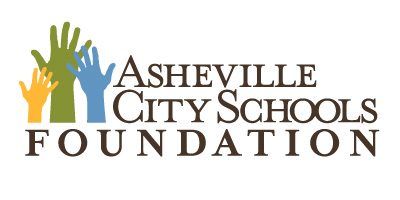





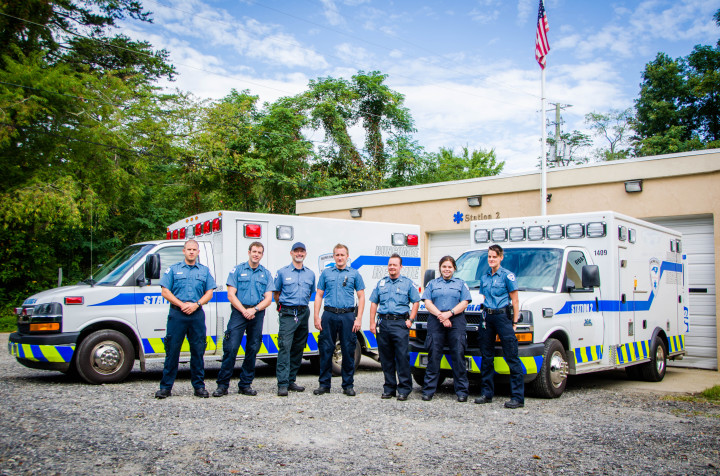


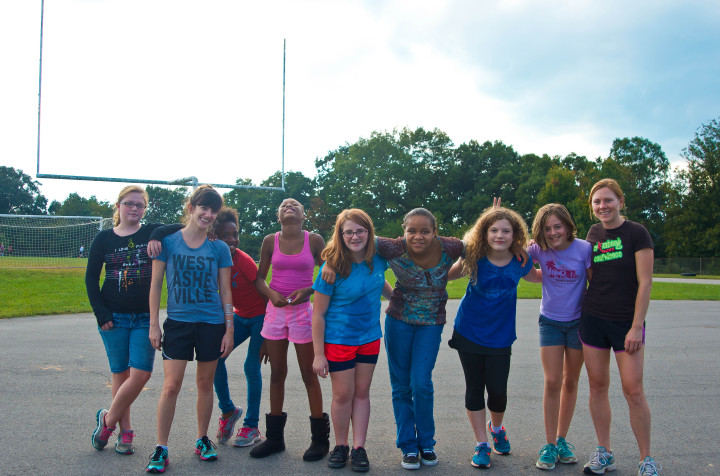


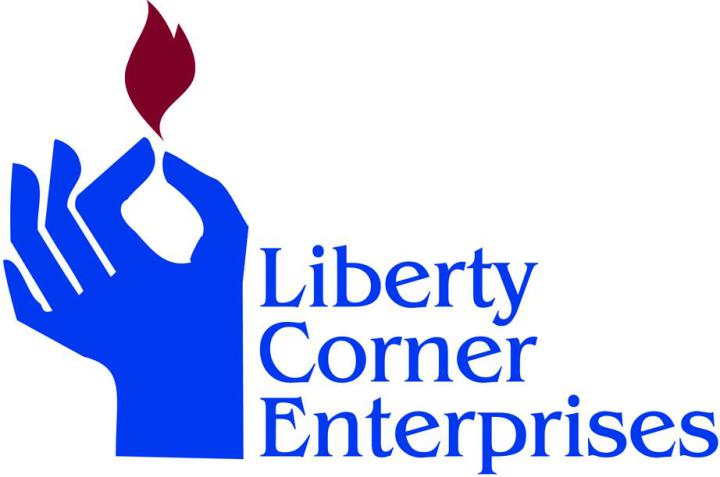


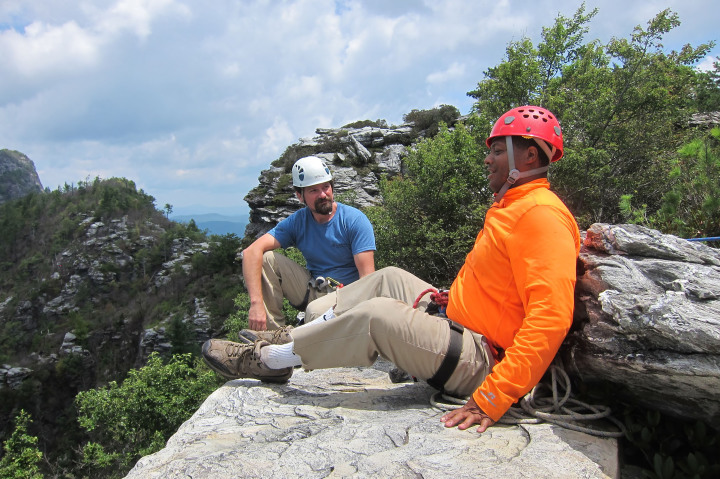



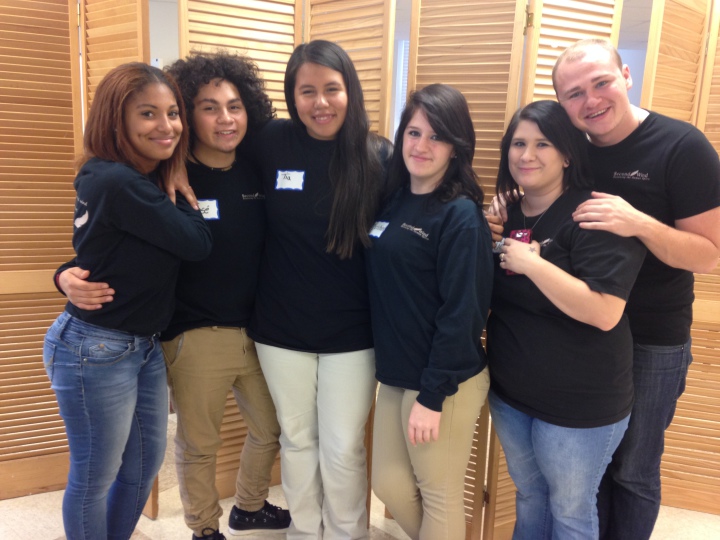
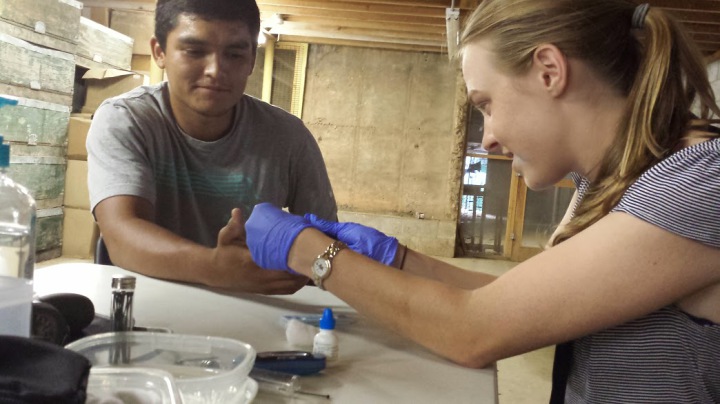
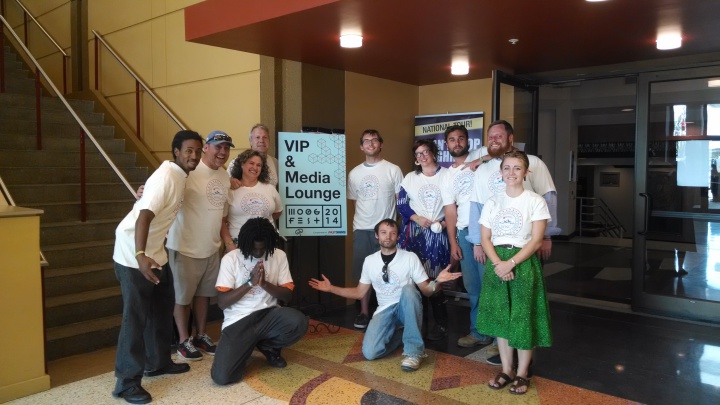
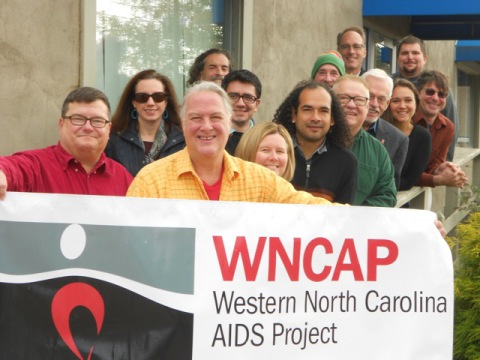


I am very saddened to not see Just Economics WNC on this list! They have the largest Living Wage Certification program in the nation, (over 400 businesses in Buncombe County) and have worked tirelessly to Advocate, Educate and Organize for a just and sustainable local economy in WNC. They engage the public sector, private businesses, workers and consumers through their economic sustainability work. The direct impact to thousands of WNC workers and business owners, (and thus our local economy) is quite great.
Thank you, Kelly, for the comment. We offer in this week’s Nonprofit Issue a sampler of the many, many organizations that serve key needs in our region. Indeed, Just Economics does a lot for WNC residents, works and business owners. We didn’t forget them — they’re a featured partner in our soon-to-publish Go Local guide.
I applaud the work that nonprofits do but I must caution folks about an issue regarding nonprofit run charter schools. I am the spouse of a founder of the first charter school in Asheville and I am extremely disturbed about the complicated financial arrangements that the founders set up for my wife and I. After a decade and a half of funding what I had been told was my “retirement account” I was informed by my wife that there is no retirement account and that she “may want to do something different in the next phase” of her life. I was told by another founder that they “did it that way in case you turned out to be a cheating husband,” whatever that means. It has been suggested that the money “may have been” simply donated to the school but I have no right to any of this information as it is “confidential.” I now believe that we were simply helping fund the school in exchange for a “golden handcuffs” contract that is not divisible with a spouse. Let me state this clearly: My retirement savings plan was specifically designed to leave me homeless. I was persuaded to use the charter school plan instead of my own 401k because I thought my wife’s nonprofit organization would be safer than a for profit, privately owned company and she told me that this plan provided some matching funds. I feel really stupid. I am sick over this in a way that I will never recover. Being that this plan consumed half of my home equity and all of our excess income for so many years, I believe I have a right to ask for a public discussion about what we did. The terms of our financial arrangement should be public knowledge so that what happened to me never ever happens to another person.
hallo
can I find any organizations that can help me establish a nonprofit organization in kenya to rehabilitate abused children eg. raped, underage sex workers, earlier pregnancies and street children,orphans amongst others.